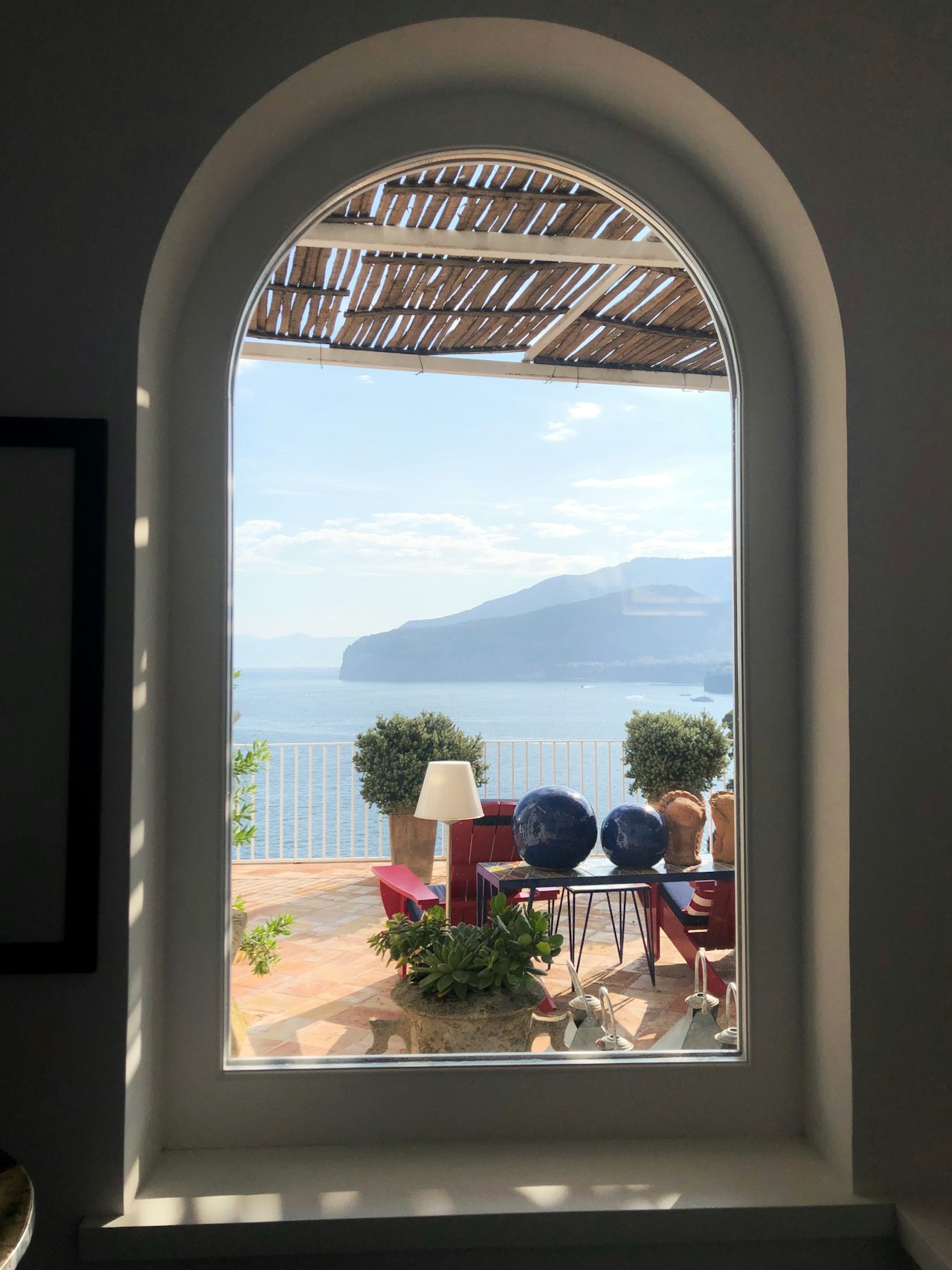Eiffel Tower, Hawaii, Or Central Park? LiquidView’s Virtual Windows Make Famed Views Possible From Anywhere
Coldwell Banker November 30, 2023
Buyer

Coldwell Banker November 30, 2023
Buyer

It’s the purple that gets you. At dusk, when the sun starts to melt into the horizon, the sea and sky are transformed into a magnificent palette of sherbet hues, with a wide swath draped in lilac and violet.
It’s always been your dream to have a view like this. But your life is in Dallas, hundreds of miles from an ocean.
That’s just the kind of challenge LiquidView aims to solve.
The San Francisco-based content/interior design company’s virtual windows can make your landlocked home look, sound, and feel like it’s right on the sand, in Hawaii. Or The Hamptons. Your condo can peer out over the undulating waves of the Atlantic Ocean instead of your neighbor’s cluttered kitchen. You can supplement your annual jaunts to Paris with a daily, and nightly, view of the Eiffel Tower. You can even turn the wall of your living room into an exquisite showcase of Central Park at its fall leaf-peeping peak.

Photo by: Sander Olson | Photo Courtesy: LiquidView
The New York shoot, the latest edition to LiquidView’s ever-expanding content library, was done from a 32nd-floor terrace suite of the JW Marriott Essex House New York —an ideal setting in which to capture the nuances of the city over 24 hours because it showcases both the park and Midtown city lights. Location scouting is the most significant challenge involved in creating the virtual windows, says Mitch Braff, the company’s founder and CEO, because the setting must have visual interest around the clock.
“We location scout to find one view that looks fantastic for 24 hours. That’s not an easy feat,” he says. “We’ve been scouting in Aspen, where the mountains are beautiful but there’s not a lot that looks great at night. So, we have to find another location that looks great during both, without moving the camera.”

Photo Courtesy: LiquidView
The 24-hour views, which are created from 35 total hours or filming, provide a more realistic “window” to the world. Wind, sky, lighting changes, the occasional visiting animal, perhaps — they all become part of the package. Everything is shot in 8K by a small camera crew on a Sony Venice 2 motion picture camera, the same one used to shoot Avatar 2, says Braff. Then, the footage is edited down, color-corrected, and the sound captured on site (waves crashing, birds chirping) is integrated to complete the fully immersive experience.
The finished product is inset in the wall to look like a real architectural window as opposed to being hung on the wall like a TV. It’s also synched to the local time and programmed to fluctuate as days get longer or shorter. Pricing ranges depending on the size of the window, the window casing, and the different types of content packaging, says Braff. “At the low end, a smaller window could be $7,000, and $100,000 for multiple larger windows.

Photo by: Mitch Tobias | Photo Courtesy: LiquidView
The idea for LiquidView developed while Braff, a filmmaker, was working with a client on a prior business venture in San Francisco. “The client had a beautiful home in Pacific Heights, with gorgeous views in the back, but neighbors on the side of the house,” he says. “I remember thinking, ‘What can we do when he doesn’t have a view?’ I realized I could create something in the wall that would look like a window depending on how we framed it.”
Partnering with renowned innovation firm IDEO helped bring the concept to life. “Now, all of a sudden, we could add a window where no window existed, and we’re not limited by the physical constraints of the building,” he says. “It’s very different — something that’s never been done before.”
The company has since showcased LiquidView windows in large trade shows like InfoComm and CEDIA and created pop-ups for hands-on demonstrations across the country; continued to seek out new locations, add to its content library (next up: Nashville and Miami), and field requests for custom locations; and completed installations in both residential and commercial properties. But their plans remain grander than the views.

Photo Courtesy: LiquidView
“The dream is to put this into millions of commercial and residential spaces in places where people have no views or terrible views: commercial offices trying to bring people into work; commercial-to-residential conversions that are challenged because they don’t have windows; hospitals, life and science facilities, retirement homes, spas, and gyms,” he says, noting the importance of the health and wellbeing angle. “Stanford is doing a study on the neurobiological health benefits of windows. There are so many spaces in our lives that don’t have views, windows and light; we can change that. The possibilities are infinite.”
Stay up to date on the latest real estate trends.

December 4, 2025

Buyer
December 2, 2025
Focus on homes that have been sitting on the market for a while.

Seller
November 28, 2025
When the holidays roll around, travel plans, family gatherings, and all the chaos of the season may make you think it’s better to pull your listing off the market or t… Read more

November 21, 2025

Buyer
November 21, 2025
Homebuyers are watching the economy closely, and for good reason.

Seller
November 21, 2025
Here’s something you should know before you sell your house.
We Guide Homeowners through the complicated process of selling their home using our 4 Phase Selling Process and 3 Prong Marketing Strategy that alleviates their stress and moves them effortlessly to their next destination. Schedule a 15 Minute Complimentary Strategy Session Today